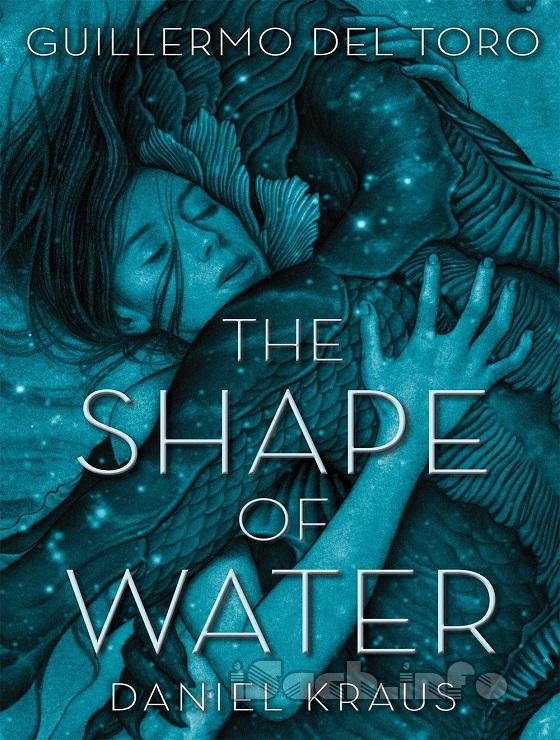Chapter 5
T
he two-wheeled grocery cart is more agile than Elisa’s janitorial equivalent, but Baltimore’s sidewalks present a more robust challenge than polished laboratory floors. It’s late afternoon, forever since she’s slept, but she still isn’t tired; cradling the creature in the van seems to have injected her with the opposite of whatever had filled Hoffstetler’s syringe. She is electrified. She got off the bus several stops early so that she could take a scenic walk home, burn off this nervous energy. As badly as she wants to see the creature again, the brine odor of the Patapsco lures her forward, like a child to fresh-baked cookies.She wrangles the cart past an off-limits pier and working wharf. There she finds a thin pedestrian jetty. Is it legal to walk it? The last thing she needs is police. But there is nothing suggesting a ban. She walks out onto the river, the shadow of city buildings sliding off her back like a nightgown. There is no fence, no protective posts, nothing but a sign reading NO SWIMMING! NO FISHING! OPENS TO THE SEA AT 30 FT! The idea of fishing has always revolted her, and no one at Home ever taught her to swim, but she understands the sign well enough. Once the water level reaches the 30 FT mark painted on a concrete stanchion—assuming it ever rains again—the canal will provide access to the bay, as well as the ocean.
Elisa parks her cart and toes the edge of the jetty, closing her eyes against a spluttering salt spray that suggests the day is not as halcyon as she has perceived it. This explains why people on the bus had their collars upturned and their postures locked so as not to feel the chill of their own clothes. It also helped explain why the woman who’d sat across the aisle from Elisa hadn’t noticed her sunny smile until the third attempt.
The woman had been pretty, everything that Elisa, until the events of the past day, had ever dreamed of being, just how she’d always imagined Julia of Julia’s Fine Shoes. Slim, but with curves enough to fill out a striped flannel dress, the ensemble accented with rhinestone buckles, a matching pin, bracelets, earrings, and wedding ring. Only the blond beehive felt out of date, and that Elisa attributed to the fact that, well, this was a working woman, and working women, as Elisa well knew, were busy.
When she’d finally caught the woman’s eyes, the woman had hesitated before smiling back; like everyone else, she’d seemed taken aback by Elisa’s gaiety. She’d glanced down at Elisa’s hand, seeming to take note of the absence of a ring. To Elisa’s surprise, the woman showed not scorn but relief; the smile became less performative, more genuine. Elisa got the sense that, as much as she admired this beautiful, professional woman, the woman admired her even more. Even crazier, Elisa felt she could hear the woman’s primary thought: Do what your heart tells you. At all costs, follow your heart.
At last, Elisa is doing just that. But here, at the edge of the world, the temperature dropping by the second, Elisa finds herself troubled by the woman’s pinched expression. If a woman who has it all can be so unhappy, what hope has a graveyard-shift janitor, one who can barely make rent, one whose inability to speak cuts her off from most of society, one who happens to have a highly classified amphibious man lying in her bathtub?
Elisa opens her eyes, turns around, squints north. There is no more doubting it: It is a gray, foreboding day. The proof is in the distant marquee lights of the Arcade, which Mr. Arzounian doesn’t switch on unless it’s dark enough to warrant the expense. Elisa’s stomach seesaws. She can see the Arcade from here, which means the creature is that close to this river. The proximity upsets her. She grabs her cart, wheels it around, heads home as quickly as she can.
She finds Giles asleep, upright on top of the toilet lid, snoring lightly, his hands caked in charcoal. Quietly, so as not to wake him, she lowers herself to the ratty rug, folds her arms on the tub rim, and nestles her chin into them. She gazes into the creature’s eyes, still bright underwater, and listens to the soft bubbling of his breath. He blinks, a greeting. She unfolds an arm and fins her index finger through the water until it touches the back of his hand. Unexpectedly, he rolls the hand over so that she is touching his palm, her finger the single stamen of a huge, dewy, unfolding flower. Now she listens for her own breath, but hears nothing. Hands are how the two of them talk, but this? This is a touch. Elisa pictures the woman on the bus, how rigidly she sat, touching no one. An absence of fear, Elisa realizes, can be mistaken for happiness, but it isn’t the same thing. Not even close.



 ePub
ePub A4
A4